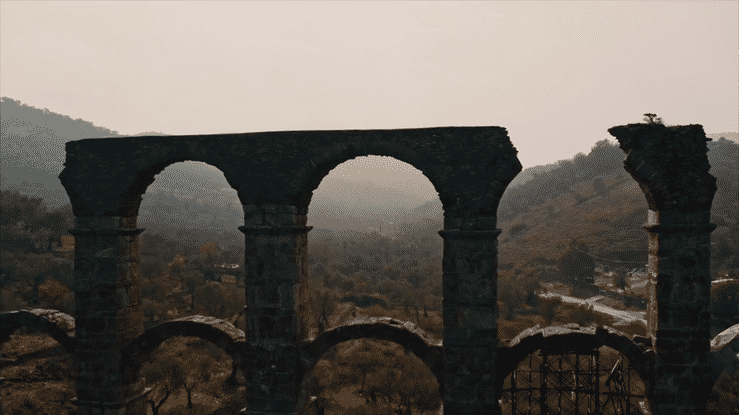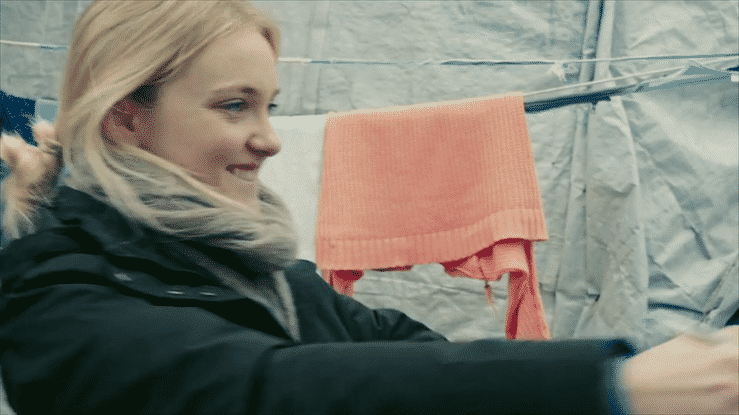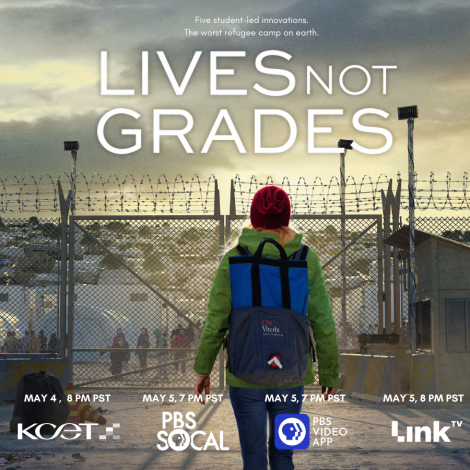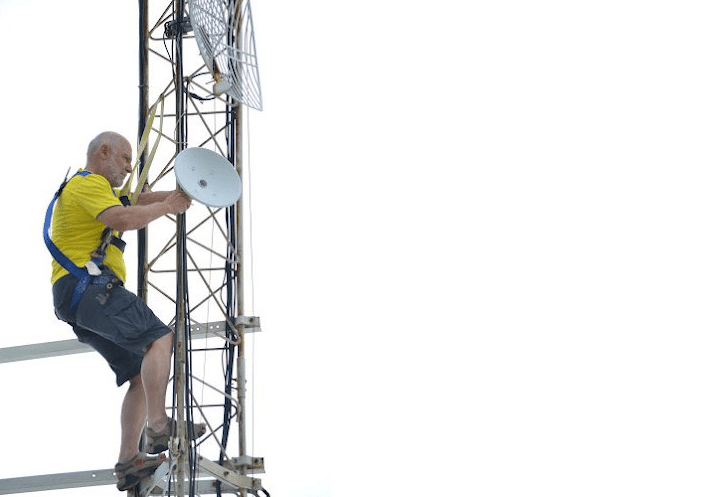 Moments after Daniel Druhora and a group of American university students entered gates of Moria Refugee Camp they saw a woman who had gone into labor while waiting for an ambulance.
Moments after Daniel Druhora and a group of American university students entered gates of Moria Refugee Camp they saw a woman who had gone into labor while waiting for an ambulance.
“The ambulance hadn’t arrived yet, and she was going to give birth right there on the ground,” Mr. Druhora said in a phone call. “And that was our introduction to Moria. That was the first thing the students saw when they walked in. I remember one of the guards turning to us and saying ‘welcome to Moria.’ And I looked at the students, they looked at me. We didn’t say anything. We knew that we were in over our heads.”
Mr. Druhora is a film producer and lecturer at the University of Southern California Viterbi School of Engineering who documented the experience in a new film, ‘Lives Not Grades.’ The hour-long documentary follows a multidisciplinary course on solving global challenges with engineering, design and storytelling that Mr. Druhora co-founded at USC with Professors Burcin Becerik-Gerber, David Gerber and Brad Cracchiola, all of whom are co-producers of the film.
The film captures moments from course in which students create products that solve real-world problems. Thirty-four students divided into five teams, each developing a product of their invention. They traveled to Moria, on the island of Lesbos in Greece, to conduct field research just months before the camp burned down.
Moria was designed for 3000 people, but was overcrowded with as many as 20,000 occupants in 2020 before it burned. ‘Lives Not Grades’ opens on footage of the civil war in Syria, the source of most of the camp’s refugees. In 2018, when Moria had just 7000 occupants, double its intended capacity, the camp was denounced as a humanitarian crisis. Human Rights Watch called it an ‘open-air prison.’
 Mr. Druhora speaks of the experience of visiting the camp with humility, both in voiceovers in the film and during the phone call for this report.
Mr. Druhora speaks of the experience of visiting the camp with humility, both in voiceovers in the film and during the phone call for this report.
“We have learned that you cannot divorce your emotions from the engineering process. To engineer is human and it involves a human process. And it involves an encounter with pain and brokenness and failure. That’s the lesson, I think, for that student who is learning to embrace failure as part of the process,” Mr. Druhora says.
The film unfolds as scenes from a real-world design process, showing snippets of interviews students conducted to identify needs and refine their designs, both on paper and as prototypes. The teams eventually spun off into startups built around products they developed through the program.
Briefly, the products are an online micro-philanthropy program, the Palmpack air-insulated jacket, the Wewash portable reusable shower, the Waterway water backpack and Safar, a mobile application that supplies information about the camp.
The documentary is available to stream free of charge at LinkTV.
https://www.linktv.org/shows/lives-not-grades/episodes/lives-not-grades

